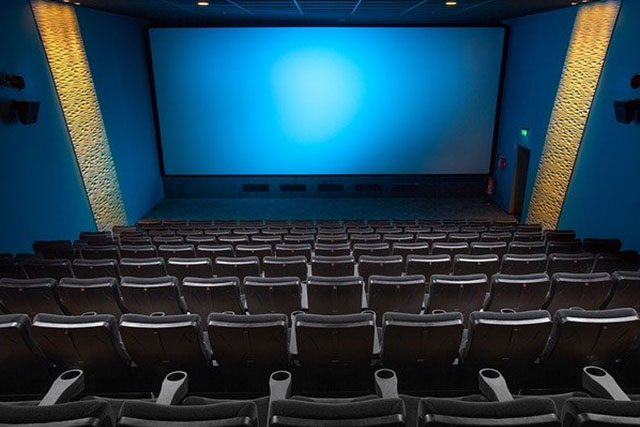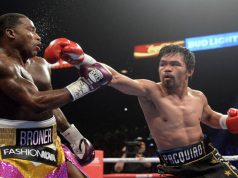A recently-filed bill proposing to rename the Metro Manila Film Festival‘s name to the “Philippine Film Festival” earned criticisms as some Filipinos questioned its relevance amid the prevailing coronavirus pandemic in the country.
Sen. Manny Pacquiao on Monday filed Senate Bill 2017 or “An Act Renaming Metro Manila Film Festival (MMFF) to Philippine Film Festival” to erase notions of “exclusivity” in the event’s name.
“The ‘Metro Manila’ in the Metro Manila Film Festival conveys exclusiveness of the illustrious tradition and celebration of local film production to the country’s capital,” the lawmaker’s explanatory note reads.
“In order to fully recognize the local movie industry’s goal of over-all developmental effort for the country, it is but suitable to rename the Metro Manila Film Festival into an inclusive ‘Philippine Film Festival,'” it added.
The bill recognized how the festival has “conveyed the richness of Filipino culture and heritage as well as the aspirations and struggles of the nation.”
The proposed legislation was not met with enthusiasm by some social media users who commented that there are other issues of national interest that must be taken into account especially in the face of a public health crisis.
“Yan talaga inaasikaso mo ngayon noh? Hahaha. Sa gitna ng pandemya, ‘yan talaga,” a Twitter user shared sarcastically with a series of clapping emojis.
“A senator who will allegedly be running for presidency in 2022 just passed one of the most irrelevant bills amidst the pandemic. Nahihiya talaga ang COVID-19 sa priorities nila,” wrote another Filipino in response to the reports.
A different Twitter user gave a rundown of some issues of national concern and juxtaposed it to the topic of the proposed bill.
“Pandemic. Unemployment. West Philippine Sea. COVID Vaccine. Plastics/Garbage. Climate Change. These problems seem very irrelevant and minuscule. The most pressing issue right now is: Metro Manila Film Festival OR Philippine Film Festival? Our country’s future is at stake,” she wrote in response to the news.
Earlier this month, the labor and employment department said that unemployment has soared to 10.2% last year. More than 420,000 Filipinos lost their jobs due to business closures brought by the COVID-19 pandemic.
The Filipino fisherfolk this week also sought for the government’s action over a recent law passed by Beijing which allows its coast guard to fire at foreign vessels amid the backdrop of tensions in the West Philippine Sea.
Foreign affairs Secretary Teodoro Locsin Jr. said a diplomatic protest had been filed over China’s ‘threat of war’ coastguard law.
RELATED: Philippines files protest over China’s ‘threat of war’ coastguard law
Meanwhile, a faculty member from the California State University said that the intention behind Pacquiao’s Senate bill is “good” but it “diminishes the legitimacy of Manila as one of the most advanced global film centers in its original heyday.”
“Metro Manila is for everyone. Metro Manila, as the NCR Hymn describes, is ‘pusod nitong ating bansa’ (navel of the nation), for it is the essence of Metro Manila that bridges every barangay from Itbayat to Sitangkay, to the innings of the Motherland. As Intramuros archivist, Rancho Arcilla professed: ‘Manila is our Rome. Manila is our Jerusalem. As a Bikolano, I never complained,” Julius Payáwal Fernandez wrote on Facebook.
“Manila was one of the three most technologically advanced metropolitan regions in Asia when it comes to film-making before World War II. The film industries of Kyoto (Japan), Shanghai (China), and Manila (Philippines) were the Asian equivalents of the established cinema industries of Europe concentrated in Italy (where Venice is), France (where Cannes is), and Germany (where Berlin is),” he added.
Festival roots
MMFF is an annual film festival held in Metro Manila which runs from December 25 through New Year’s Day and into the first weekend of January in the following year.
In the course of the festival, only Filipino films approved by its festival jurors are shown in movie theaters. Foreign movies are not shown to the public except in 3D and IMAX theaters.
MMFF officially began in 1975 but in the late ’60s, then-Manila Mayor Antonio Villegas had inaugurated the “Manila Film Festival” as a way to get Filipino films in the city’s “first run” theaters that only showed American films.
At that time, Filipino-made films were only screened in second-tier cinemas.
The festival was discontinued in the city in 1973, a year after then-President Ferdinand Marcos Sr. declared Martial Law.
A year after, the “Metro Manila Film Festival” was established “in recognition of the role of the film industry in providing artistic depictions of both this country’s stories and history,” according to festival-runner Metro Manila Development Authority.
The festival was also expanded to include other cities and towns in the newly-formed Metro Manila, which was created through a presidential decree to sustain the growing population in the urbanity and to establish a more unified development among cities.










